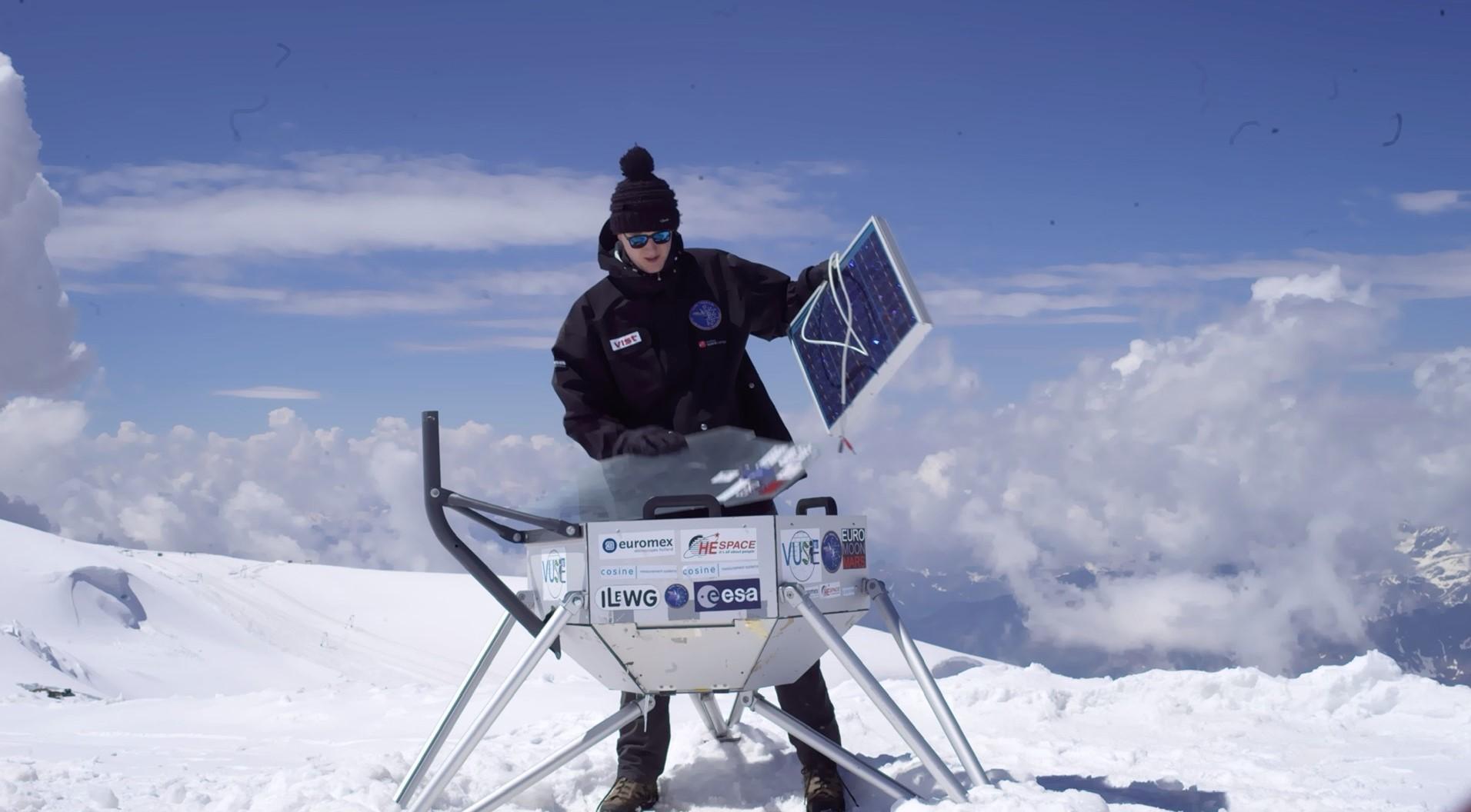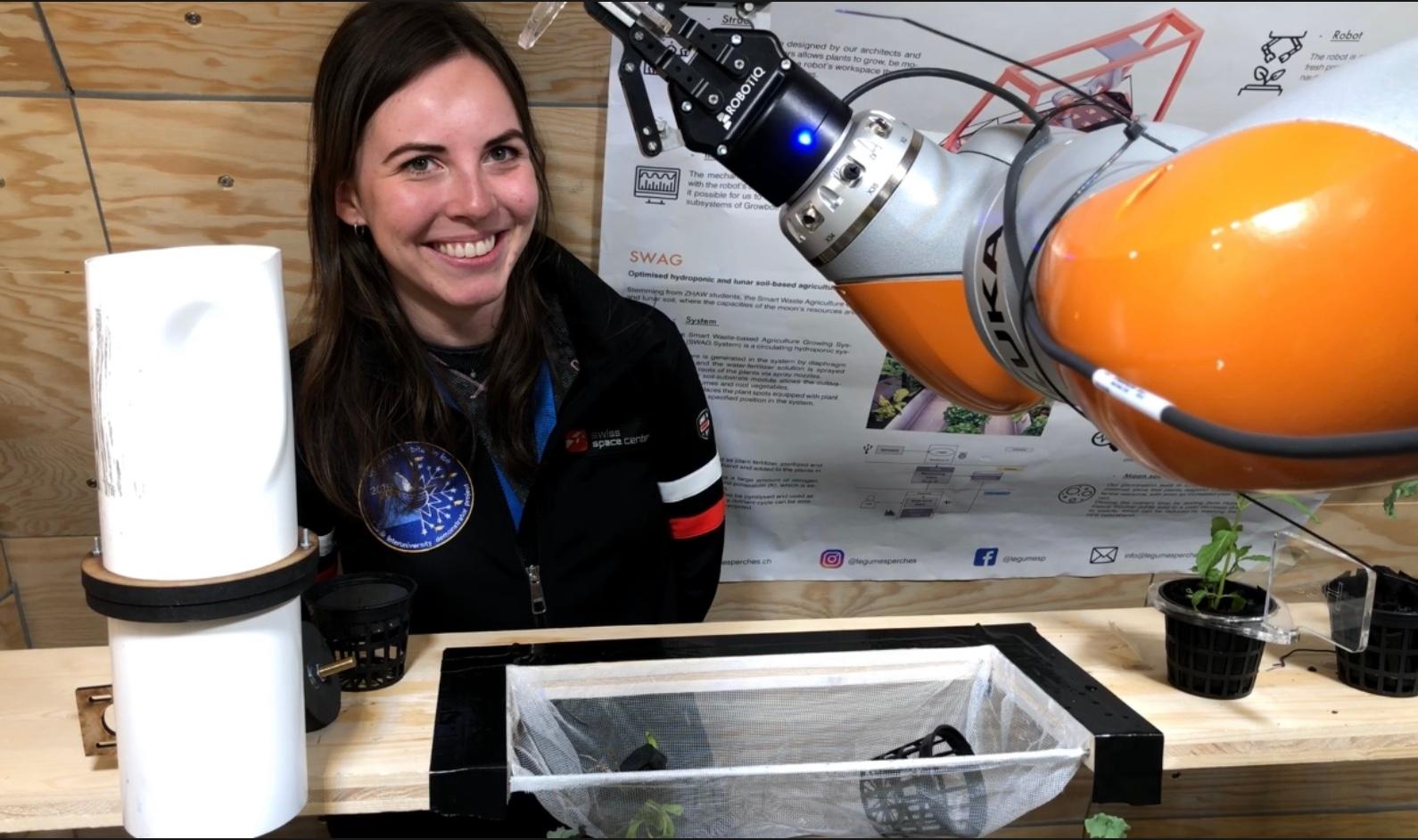
Second edition of moon habitat project planned for Mount Pilatus

This summer 15 teams of students will test their own designs to help humans live on the moon in the second edition of the Igluna project.
The first edition of the student project took place last summer to mark the 50th anniversary of the Apollo 11 Moon landing. Some 20 students tested prototypes of different mono-habitats in a glacier cave on the Klein Matterhorn in Zermatt.
Under the auspices of the European Space Agency (ESA) and coordinated by the Swiss Space Centre, the second edition of IglunaExternal link challenges students to build a habitat on Mount Pilatus that can be controlled remotely from the Swiss Museum of Transport in Lucerne. Access to the test site will therefore be limited, as is the case with space missions.
The construction and test operation of the habitat prototypes is planned for July 10-19, 2020.
Fifteen teams of students from ten countries are taking part in the project, including students from the Swiss Federal Institute of Technology Lausanne (EPFL), the Zurich University of Applied Sciences (ZHAW) and the University of Bern. The teams met for the first time in Lausanne in September 2019.
The teams will develop concepts and prototypes on six topics. The EPFL and ZHAW teams will focus on cultivation systems for vegetables while the students from the University of Bern will be involved in a scientific experiment to detect amino acids. Other teams will focus on life support systems or structural elements of the habitat, such as developing fibres for textiles and construction elements from rock.
The Igluna project aims to stimulate student education and exchange while also demonstrating technologies to sustain life in an extreme environment for a space habitat.

More
What technology could help humans live on the Moon?

In compliance with the JTI standards
More: SWI swissinfo.ch certified by the Journalism Trust Initiative




























You can find an overview of ongoing debates with our journalists here . Please join us!
If you want to start a conversation about a topic raised in this article or want to report factual errors, email us at english@swissinfo.ch.